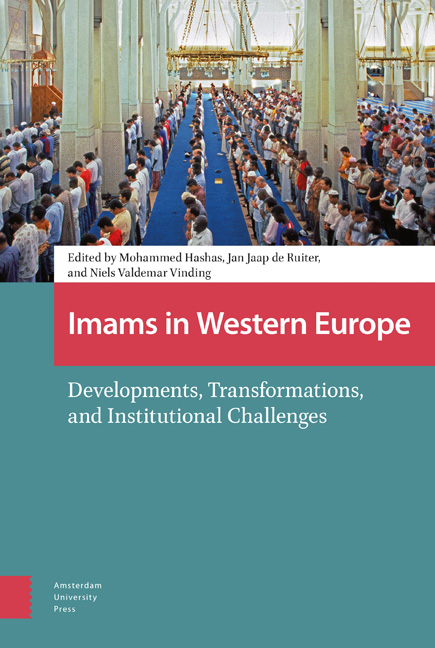5 - The European Imam: A Nationalized Religious Authority
Published online by Cambridge University Press: 06 January 2021
Summary
Abstract
This chapter argues that the position of the European imam is being nationalized and consequently rendered more dependent on both religious scholarship and political authority, and that the transmission of an ethicist message has become its major mission. First, this chapter briefly overviews the crisis of modern Islamic religious authority, situating the place of the imamate in Islamic scholarship to demonstrate that it is not an independent scholarly position but rather an administrator of the religious affairs of believers at the local level. Second, the chapter presents the model of the Moroccan imamate as a way of understanding the role that is expected of imams by modern political and religious authorities. Third, reference is made to the situation of the French imamate as an example of the situation of imams in Western Europe. The reflective closure of the chapter raises points about how the question of ethics is becoming central in the sermons and teachings of a growing number of imams, and how important it may be as a field for further research.
Keywords: Islam in Morocco, Moroccan imams, French imams, King Mohammed VI International Imam Training Center
Introduction
In the Sunni tradition, the study of the imams and imamate is a very recent phenomenon for two main reasons. First, simply paging through the tables of content of Islamic scholarly classics cannot direct you to chapters or clauses dedicated to the position of the imam and/or his roles. This is because neither the Quran nor the Sunna uses or emphasizes the term ‘imam’ as we know it today (i.e., ‘the leader of prayers and the mosque’). However, the term or its derivatives do appear in both. Second, this study originates in Western liberal societies whose state institutions have been unable to understand their Muslim minorities, or simply citizens of Muslim belief, since World War II. This confusion is partially a result of the fact that the Islamic religious authorities have not been able to agree on a modern reading of the tradition that would allow easier integration into modern state institutions and pluralist contexts where Muslims are a minority. Consequently, the imamate has emerged as a space in which authority – religious, political, or both – is negotiated.
- Type
- Chapter
- Information
- Imams in Western EuropeDevelopments, Transformations, and Institutional Challenges, pp. 79 - 100Publisher: Amsterdam University PressPrint publication year: 2018
- 1
- Cited by



